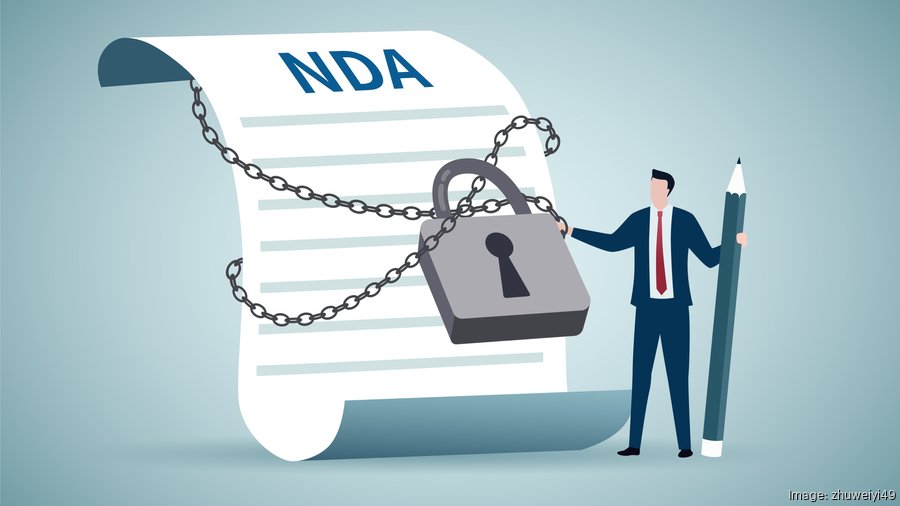Listen to this article 5 min
The National Labor Relations Board's general counsel has issued new guidance on severance and employment agreements — and the trash-talking online has already begun.
NLRB General Counsel Jennifer Abruzzo issued a memo to field offices on March 22 after an earlier ruling, which does not apply to supervisory workers, found that a severance agreement for 11 union workers that included broad nondisparagement and confidentiality terms was unlawful because they would interfere with the workers' rights to organize their workplace and in general call for better working conditions or other issues.
“Lawful severance agreements may continue to be proffered, maintained, and enforced if they do not have overly broad provisions that affect the rights of employees to engage with one another to improve their lot as employees,” said Abruzzo. “(However), the future rights of employees as well as the rights of the public may not be waived in a way that precludes future exercise of Section 7 rights, including engaging in protected concerted activities and accessing the Agency.”
We have already written some tips on how employers could tweak their severance agreements.
The memo stressed that employers could still include nondisparagement terms in severance and employment agreements, but they would have to remain extremely limited. That includes the idea that workers cannot voluntarily give up nondisparagement rights or agree to broader confidentiality agreements in exchange for more money. Abruzzo stressed that communications about work were not just between co-workers but included the general public and the media and that the NLRB ruling was not just about severance agreements but in general communications between employers and employees.
Perhaps most importantly, Abruzzo wrote that the board’s decision applies retroactively and would impact NDAs and nondisparagement agreements that had already been signed by workers.
So what makes the cut?
“Thus, a narrowly tailored, justified, nondisparagement provision that is limited to employee statements about the employer that meet the definition of defamation as being maliciously untrue, such that they are made with knowledge of their falsity or with reckless disregard for their truth or falsity, may be found lawful,” the memo said. It also pointed out that employers can still ask for a release of employment-related claims from the time the worker was at the company.
Social media platforms have since been flooded with videos and posts with workers detailing conditions and issues they have had with former employers. But experts stressed that it might be best to consult with a legal professional before making specific disclosures about an employer.
“An employee today may think I can go out and share my thoughts and comments — nondefamatory — on how I was treated and workplace conditions. And right now they are probably safe in doing that because employers are still trying to figure out what the NLRB is doing and where it's going,” said attorney Peter Glennon, president of The Glennon Law Firm.
But Glennon stressed that this NLRB ruling overturned a 2020 ruling, and that it's hard to know what the rules will be in another three years — and many employment agreements are for longer than that. One potential pitfall is that if a future NLRB reverses this decision it could leave employees that had disclosed information out to dry.
“If an employee goes out there and technically violates the terms of their severance agreement, they could be opening themselves up to liability from their employer in the future,” Glennon said.
Abrizzo also singled out other provisions in severance-related agreements that they viewed as “problematic” including noncompete clauses, no-solicitation clauses, no-poaching clauses, broad liability releases and covenants not to sue the employer that go beyond employment claims and cooperation agreements that might include employees testifying against former co-workers.
The concerns over noncompetes and no-solicitations come after the FTC issued a proposed rule broadly banning noncompete and no-solicitation agreements, as well as onerous training costs. The agency has extended the deadline for public comments from March 20 to April 19 after more than 16,000 comments were filed.
“This is part of a very active administration that we have seen from the FTC to the NLRB and in other areas,” Glennon said. “That's the challenge for employers out there.”
The memo also stated that:
- Just offering the severance agreement can be a violation, with employees not having to sign such agreements for the company to have violated the law.
- Supervisors, while beyond the scope of the NLRB decision, are still protected from retaliation if they refuse to commit an unfair labor practice against employers.
- The NLRB generally does not try to strike down entire severance agreements if one or two provisions are found to be in violation, with the agency generally seeking to have those specific provisions voided, instead. Employers that have provisions in their agreements that would be voided should consider proactively reaching out to employees and alerting them that those provisions are null and void, Abruzzo said.
Agencies across the government are also proposing or finalizing other rules that small-business owners need to be aware of.
Want more stories like this? Sign up for The Playbook newsletter — a weekly roundup of news and insights to help grow and defend your business.





